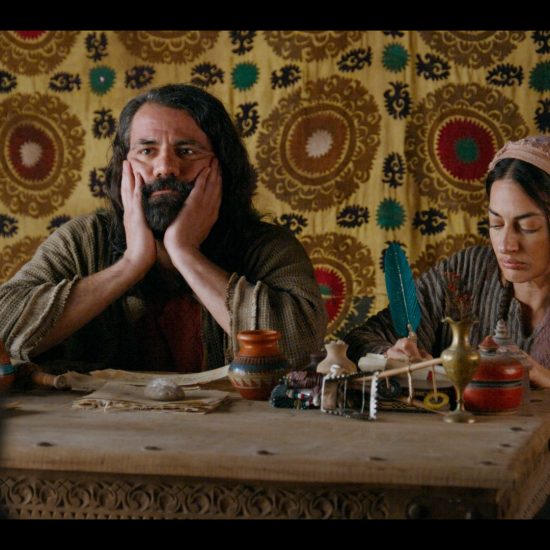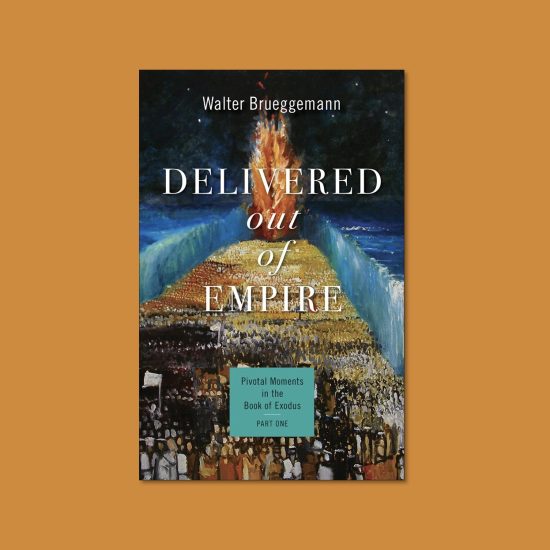 Giving the best
Giving the best
Formations: October 9, 2016
Scripture: Exodus 23:15-19a; Malachi 1:6-8
 Michael OlmstedExodus tells the story of Israel’s beginnings and the establishment of their faith. Malachi is composed in the period of Israel’s national identity as God’s people. In spite of the very different time and circumstances, both texts address the same key question: What is the focus and evidence of your faith?
Michael OlmstedExodus tells the story of Israel’s beginnings and the establishment of their faith. Malachi is composed in the period of Israel’s national identity as God’s people. In spite of the very different time and circumstances, both texts address the same key question: What is the focus and evidence of your faith?
My first church was a small rural congregation in southwestern Oklahoma. I commuted Wednesday nights and Sundays from my college in north Texas. The church rotated hosting their young single pastor on Sundays. The Smith (not their real name) family’s turn came up and I drove out to their little worn house, where I was welcomed like a king to Sunday dinner. There were four children, both parents worked, but they lived on the poverty level. They could have passed on hosting me but they counted it an honor.
I sat on the worn out sofa where I could see dinner preparations in the kitchen while I visited with Bro. Smith and his young sons. When the piglet ran through the open kitchen door and stepped in the mashed potatoes the middle daughter had spilled, I saw it all, including the return of the potatoes to the serving bowl! (Yes, the dinner was delicious. No, I did not get sick.)
Later that night, on my long drive back to campus, I thought long and hard about a little family who gave generously of their meager resources because they loved God and their young pastor. I learned that giving your best has nothing to do with being seen, displaying your social standing or religious obligation, but everything to do with your love for God and giving him your best.
Today’s Exodus passage points to three pivotal religious festivals and the integrity, or lack of, in their offerings to God.
The first is the Festival of Unleavened Bread (Exodus 23:16), which was originally the time of barley harvest, and later blended into Passover in the spring of the year. Contrasting with neighboring pagan worship of a god of planting and harvest, Israel was remembering God freeing them from slavery in Egypt. The first Passover (Exodus 12) was an event of great haste allowing no time for leaven to make the bread rise. Leaven became a symbol of sin, so nothing leavened could be offered as a sacrifice to God.
This idea is significant in Jesus’ celebration of Passover with his disciples and the reason we still use unleavened bread, representing his body, in our celebration of the Lord’s Supper (Matthew 26:26). Passover is the celebration of God’s miraculous gift of freedom, his generous blessing on his oppressed people.
The second festival is observed seven weeks after the first and is called The Festival of Harvest, or First Fruits, or Pentecost, or Weeks, in which the people celebrate the first fruits of their harvest, thanking God for his provision and ongoing care.
The last feast mentioned is the Gathering Festival (v. 16), also called the Feast of Ingathering, or Booths, or Tabernacles. This occurs in the fall at the end of grape harvest. “Booths” describes the practice of making shelters of branches, living in them during the festival days, then returning to their homes. All of this hearkened back to their years of wilderness wandering and God bringing them at last to the Promised Land as their home.
With these three sacred festivals the Jews were constantly reminded of God’s faithfulness and generosity. All of the festivals were teaching events, designed to reinforce a familiar faith and call the people to live out an active faith. Strict requirements were placed on their offerings (v. 18). Nothing leavened (symbolic of sin) could be included and it was forbidden to collect or keep the fat of any festival offerings. Exodus 23:19a specifies only the best should be offered as a sacrifice to God.
Our Malachi text picks up on the clear teaching that only our best should be offered to God. Why such clarity? It seems the people had decided any sacrifice would do, and perhaps they felt it was wasteful to sacrifice a perfect animal worth more than an animal that was blind, lame or sick (1:8)! The prophet’s words are stern as he points out that if God expects his people to honor their parents or master, where do they get the idea they can give God second rate or damaged offerings (1:6)? Priests who present such unsuitable offerings are publicly “despising” God’s name! The picture Malachi presents is one of deception, selfishness and the use of religion to gain public advantage and false respectability.
“How awful!” we say. But, how serious are we about offering our best, really giving back to God a portion of all he gives us? Look beyond the offering plate on Sunday morning, the pledge campaign, the respectability of being a “tither.” Is the church offering plate the satisfaction of a “temple ritual” or do you find joy blessing when you support and become involved in providing meals for hungry children, volunteering to help adults get their GED, providing winter coats to children living on the poverty level or giving your time to help someone overcome tragedy and begin a satisfying life?
These texts were written in a world where there were no programs, government or otherwise, to help people recover from disaster or disadvantage. We live in a much different day, yet not so dissimilar. To worship God, to serve God, to remember the expansiveness of God’s love and grace, means to give in acts of worship and in the world around us. God’s people do not just serve God in holy places of worship rituals, but wherever Jesus sends us to minister in his name and power. As people saved by the incredible grace of God we should gladly give our best to honor God in his church and in his world.
Retired after more than 45 years in pastoral ministry, Michael K. Olmsted enjoys family, supply preaching and interim work, literature, history, the arts and antiques.
Formations is a curriculum series from Smyth & Helwys Publishing, Inc. through NextSunday Resources.
The PDF download requires the free Acrobat Reader program. It can be downloaded and installed at https://get.adobe.com/reader.



